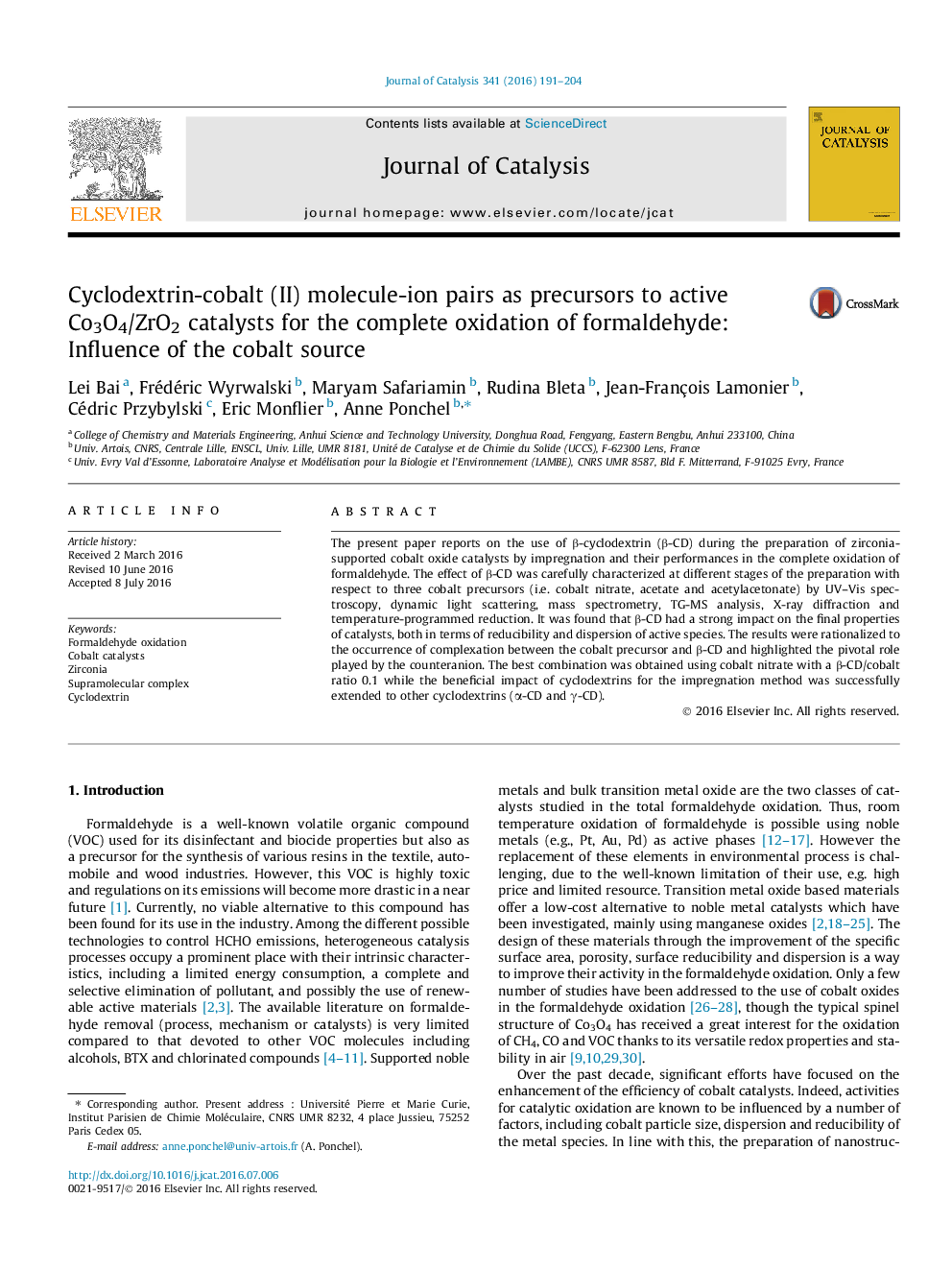| Article ID | Journal | Published Year | Pages | File Type |
|---|---|---|---|---|
| 60498 | Journal of Catalysis | 2016 | 14 Pages |
•Effects of cyclodextrin addition are studied in 5 wt.% cobalt-zirconia systems.•Complete oxidation of formaldehyde over the Co3O4/ZrO2 catalysts is examined.•Impact of cyclodextrin on the catalyst efficiency is dependent on cobalt precursors.•Cyclodextrin can stabilize Co(II)-CD adducts or inclusion complexes.•Activity varies with the order of Co(N)-CD0.1/Zr > Co(acac)-CD0.1/Zr > Co(AC)-CD0.1/Zr.
The present paper reports on the use of β-cyclodextrin (β-CD) during the preparation of zirconia-supported cobalt oxide catalysts by impregnation and their performances in the complete oxidation of formaldehyde. The effect of β-CD was carefully characterized at different stages of the preparation with respect to three cobalt precursors (i.e. cobalt nitrate, acetate and acetylacetonate) by UV–Vis spectroscopy, dynamic light scattering, mass spectrometry, TG-MS analysis, X-ray diffraction and temperature-programmed reduction. It was found that β-CD had a strong impact on the final properties of catalysts, both in terms of reducibility and dispersion of active species. The results were rationalized to the occurrence of complexation between the cobalt precursor and β-CD and highlighted the pivotal role played by the counteranion. The best combination was obtained using cobalt nitrate with a β-CD/cobalt ratio 0.1 while the beneficial impact of cyclodextrins for the impregnation method was successfully extended to other cyclodextrins (α-CD and γ-CD).
Graphical abstractFigure optionsDownload full-size imageDownload high-quality image (226 K)Download as PowerPoint slide
